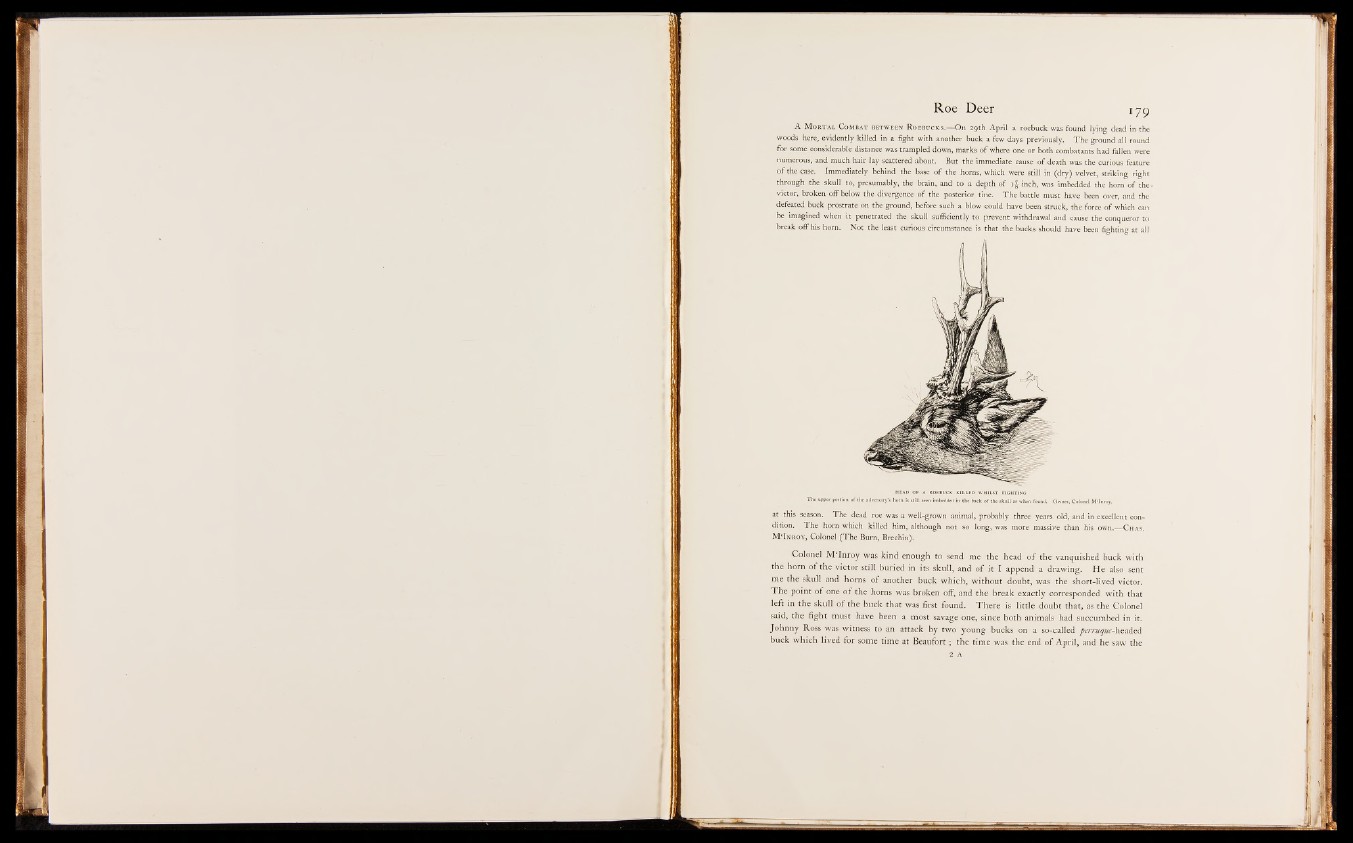
Roe Deer
179
A M o r t a l C om b a t be tw e en R o e b u c k s.— O n 29th April a roebuck was found lying dead in the
woods here, evidently killed in a fight with another buck a few days previously. The ground all round
for some considerable distance was trampled down, marks of where one or both combatants had fallen were
numerous, and much hair lay scattered about. But the immediate cause of death was the curious feature
of the case. Immediately behind the base of the horns, which were still in (dry) velvet, striking right
through the skull to, presumably, the brain, and to a depth of i f inch, was imbedded the horn of the.
victor, broken off below the divergence of the posterior tine. The battle must have been over, and the
defeated buck prostrate on the ground, before such a blow could have been struck, the force of which can
be imagined when it penetrated the skull sufficiently to prevent withdrawal and cause the conqueror to
break off his horn. Not the least curious circumstance is that the bucks should have been fighting at all
at this season. The dead roe was a well-grown animal, probably three years old, and in excellent condition.
The horn which killed him, although not so long, was more massive than his own.— C h a s .
M 'Inroy, Colonel (The Burn, Brechin).
Colonel MTnroy was kind enough to send me the head o f the vanquished buck with
the horn o f the victor still buried in its skull, and o f it I append a drawing. He also sent
me the skull and horns o f another buck which, without doubt, was the short-lived victor.
The point o f one o f the horns was broken off, and the break exactly corresponded with that
left in the skull o f the buck that was first found. There is little doubt that, as the Colonel
said, the fight must have been a most savage one, since both animals had succumbed in it.
Johnny Ross was witness to an attack by two young bucks on a so-called /wr#y#t,-headed
buck which lived for some time at Beaufort ; the time was the end o f April, and he saw the
2 A